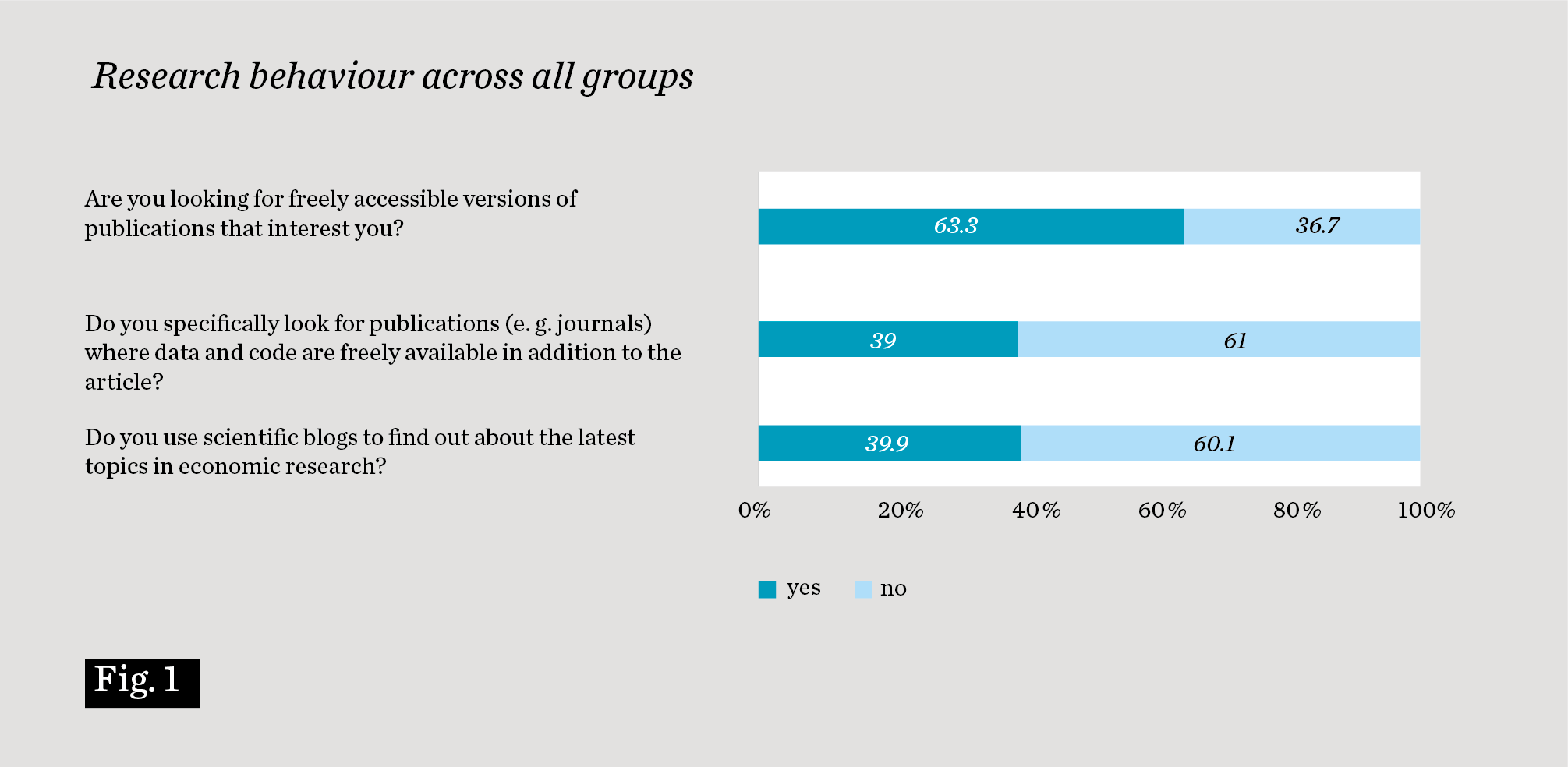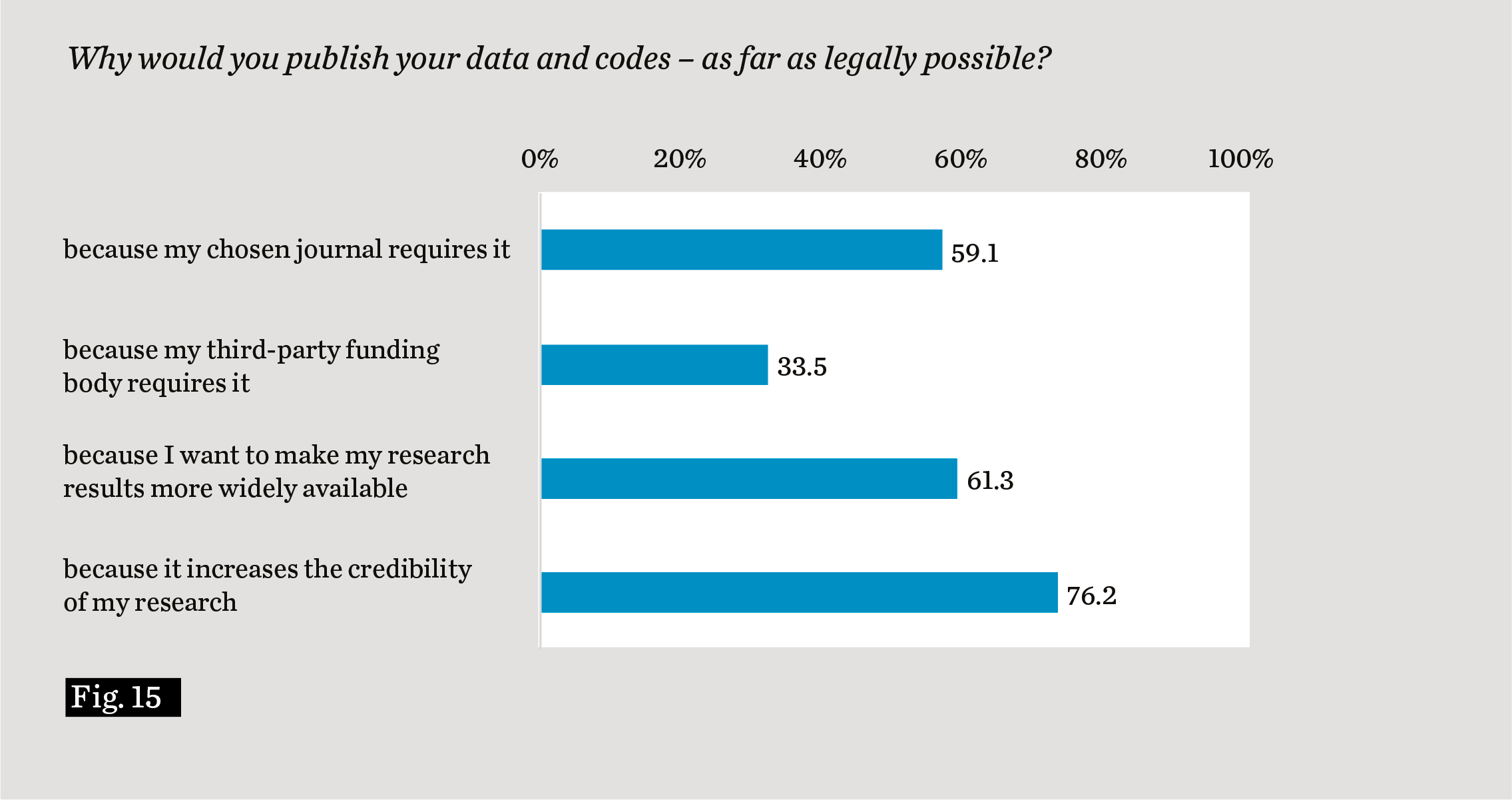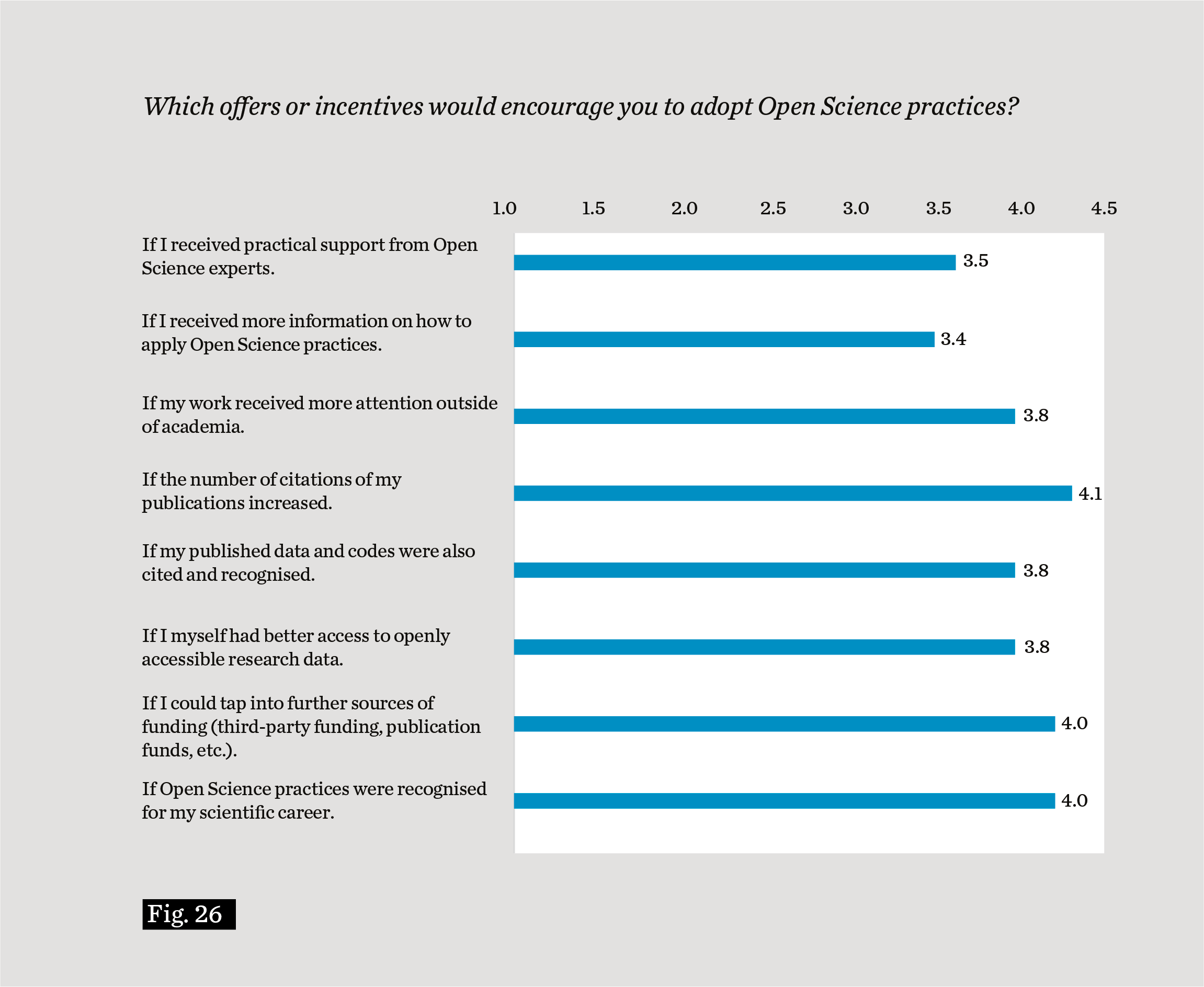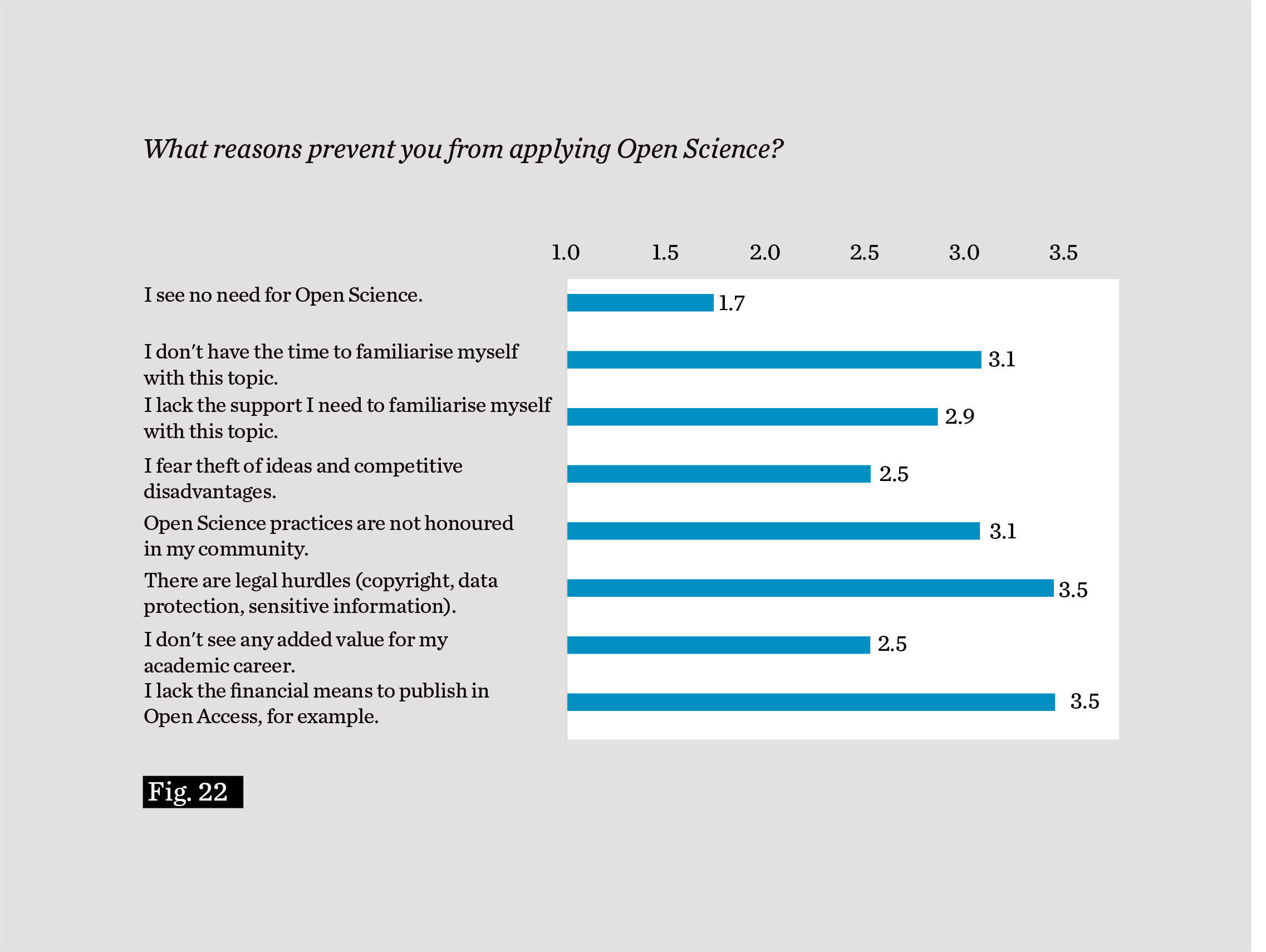
Open Science Study: Business Studies and Economics on Track for More Openness
A recent study by the ZBW – Leibniz Information Centre for Economics shows that Open Science practices are experiencing growing acceptance among business studies and economics researchers in Germany. However, there are still significant obstacles such as high publication fees, legal concerns and a lack of incentives for open and transparent research. The study results emphasise the need for further support for researchers in business studies and economics in order to promote the openness and reproducibility of research results.
by Guido Scherp and Doreen Siegfried – ZBW
The ZBW – Leibniz Information Centre for Economics has published the results of a recent study on Open Science practices in business studies and economics. The empirical study is based on an online survey of 314 researchers at German universities and research institutions. It provides important insights into attitudes, applications, barriers and incentives in connection with Open Science in business studies and economics.
Skip to PDF contentThe study shows that Open Science is becoming increasingly important in business studies and economics, but that there are significant differences between different types of institutions. Some key findings are presented below.
A first ZBW study on the importance of Open Science in business studies and economics was conducted back in 2019. However, with a different focus and methodology. Therefore, the results are not directly comparable with each other, but where possible, the differences are discussed.
Greater awareness of free accessibility
63.63 per cent of respondents specifically search for freely accessible versions of publications, primarily via Google Scholar. In 2019, this figure was just over a third. In addition, 39 per cent deliberately check whether data and code are available when searching for literature.
When working with research data, 38.3 per cent also attach importance to the fact that the data they use themselves is freely accessible. A key reason for relying on Open Data is the reproducibility of their own research results (67.5 per cent).
Compared to the 2019 study, a trend can be seen that researchers are becoming increasingly aware and appreciative of freely accessible research results.
Accessibility of own research results as the main motivation
Academic staff particularly at universities publish directly in Open Access (gold OA) in peer-reviewed journals. The proportion of total publications in this group is 39.2 per cent. This is followed by professors at universities (27.7 per cent) and universities of applied sciences (UAS) (23.3 per cent). In economics (37.2 per cent), the proportion of Open Access publications is twice as high as in business studies (19.8 per cent). Overall, therefore, closed access still dominates when looking at business studies and economics as a whole.
When publishing in Open Access, this is primarily due to the desire to make research results more widely accessible and the conviction that publicly funded research should be accessible (significantly less pronounced among UAS professors). The fact that a chosen journal is already Open Access was given as a reason by around half of the respondents.
At around 70 per cent (UAS professors 60.7 per cent), a lack of funds for APC fees is the main reason for not publishing in Open Access. Only a minority of around 20 per cent (UAS professors 10.7 per cent) still have doubts about the quality of Open Access journals.
Only around half of the researchers in business studies and economics surveyed were aware of the principle of secondary publication (green OA); only 37.6 per cent of research assistants. Of these, merely around a third have used their secondary publication rights at all; only 15.3 per cent of the research assistants have done so.
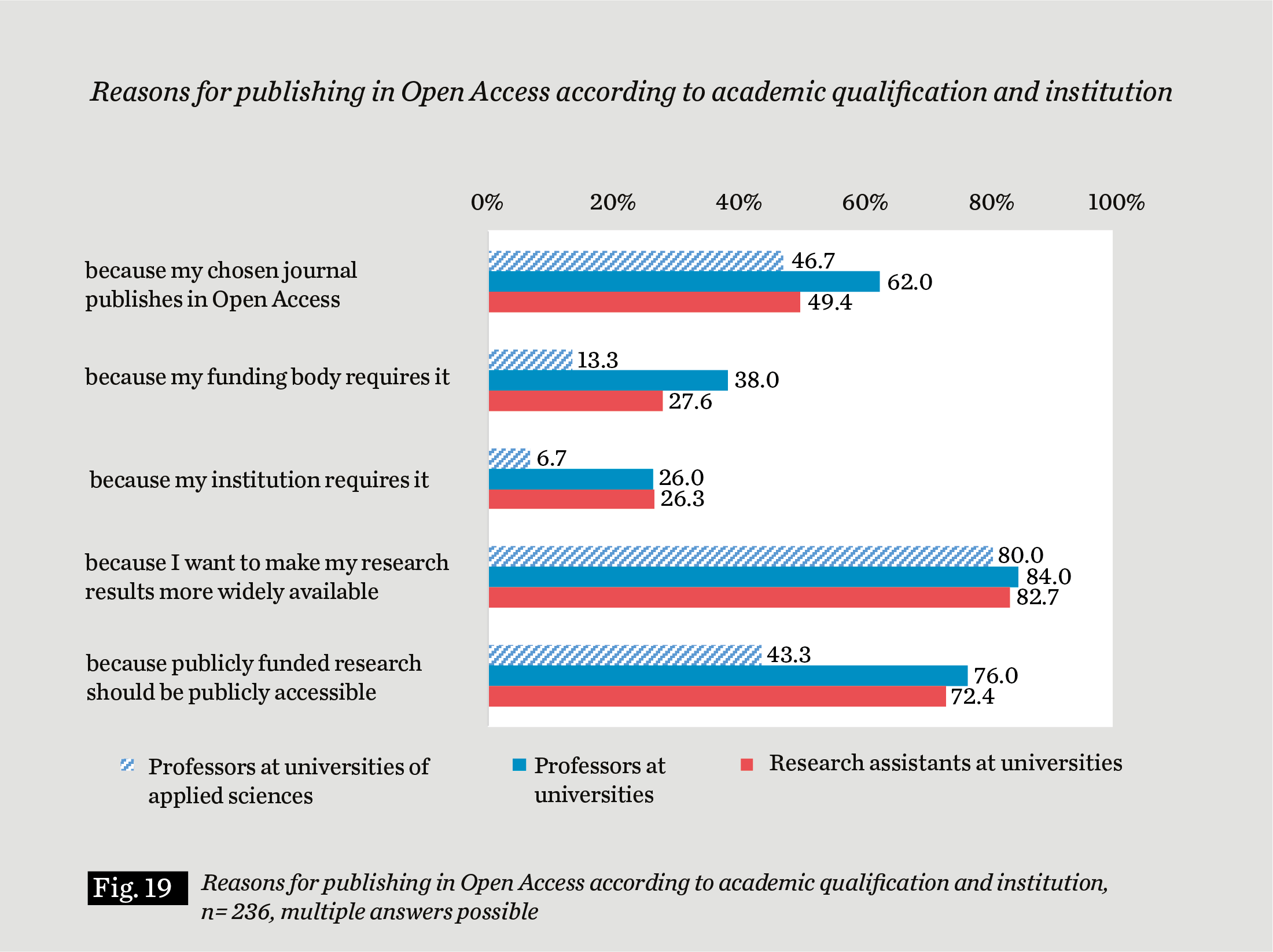
Fig 19 – Reasons for publishing in Open Access according to academic qualification and institution, n= 236, multiple answers possible
Credibility is a decisive incentive for the provision of data and code
Of the respondents at universities, 91.6% work with research data (in 2019, the figure was 78%), while 66.7 per cent of respondents at universities of applied sciences do so. Of these, 62.5 per cent already publish data and code (where legally possible).
The reasons for publication are similar to those for Open Access. For 76.2 per cent, the main reason is that making data and code available increases the credibility of their own research. For 61.3 per cent, it is important that the research results are more widely accessible. In addition, 59.1 per cent stated that their chosen journal requires this. Journals are increasingly applying corresponding policies on the availability of data and code.
The main reason given by 66.1 per cent for not publishing data and code was that it was too costly. This was followed by fears of a competitive disadvantage for 40.4 per cent of the business studies and economics researchers surveyed.
Lack of incentives more relevant than existing barriers
The main incentives for open practices, especially at universities, are increasing citations (mean value 4.1 on a scale of 1-5), access to additional sources of funding (M=4.0) and general recognition for academic careers (M=4.0). Overall, all of the incentives mentioned have a higher mean value than 3.4. The importance of these incentives has remained constant compared to 2019.
Legal hurdles (M=3.5) and a lack of financial resources (M=3.5) are seen as the biggest obstacles. In 2019, only less than a third of respondents saw these two reasons as barriers. It is possible that more legal problems have arisen with increasing Open Science practice or that there has been greater sensitisation. Perhaps increasing publication costs for Open Access are making themselves felt or other financial conditions have changed. The acceptance of Open Science becomes clear from the fact that the least significant obstacle is that there is generally no need for Open Science (M=1.7).
Overall, the study shows that, in comparison, existing barriers appear to play a lesser role than a lack of incentives.
Intensify support for researchers in business studies and economics
Overall, there are signs of a positive development in business studies and economics towards more transparency and openness. A certain intrinsic motivation is contributing to a growing acceptance of open practices.
However, the results also emphasise the need to intensify support for researchers in business studies and economics in order to further promote the openness and reproducibility of academic research.
The ZBW will use the knowledge gained to further develop its offerings and services in this area and provide researchers with targeted support. Its activities will focus on networking researchers and institutions from business studies and economics, further developing the already initiated and active Open Science community and supporting collaborations.
This might also interest you:
- Study: The importance of Open Science in business studies and economics. An empirical study by the ZBW – Leibniz Information Centre for Economics
- Open Economics: Study on Open Science principles and practice in economics
- Open Science in the economics: Selected Results from the ZBW Awareness Analysis 2022
- Open Science Symposium: Open practices and transparency in business studies economics
- On the activities of the ZBW on the way to more exchange in terms of openness, reproducibility and cooperation (German)
This text has been translated from German.
Dr Guido Scherp is head of the “OpenScienceTransfer” department at the ZBW – Leibniz Information Centre for Economics. He can also be found on LinkedIn and Mastodon.
Portrait: ZBW©, photographer: Sven Wied
Dr Doreen Siegfried is Head of Marketing and Public Relations at the ZBW – Leibniz Information Centre for Economics. She can also be found on LinkedIn.
Portrait: ZBW©
View Comments

FAIR Data Spaces Project: Distributed Data System for Industry and Research
The FAIR Data Spaces project is creating a shared data space between Gaia-X and the...


